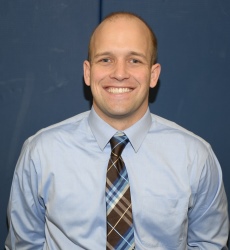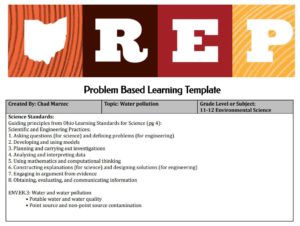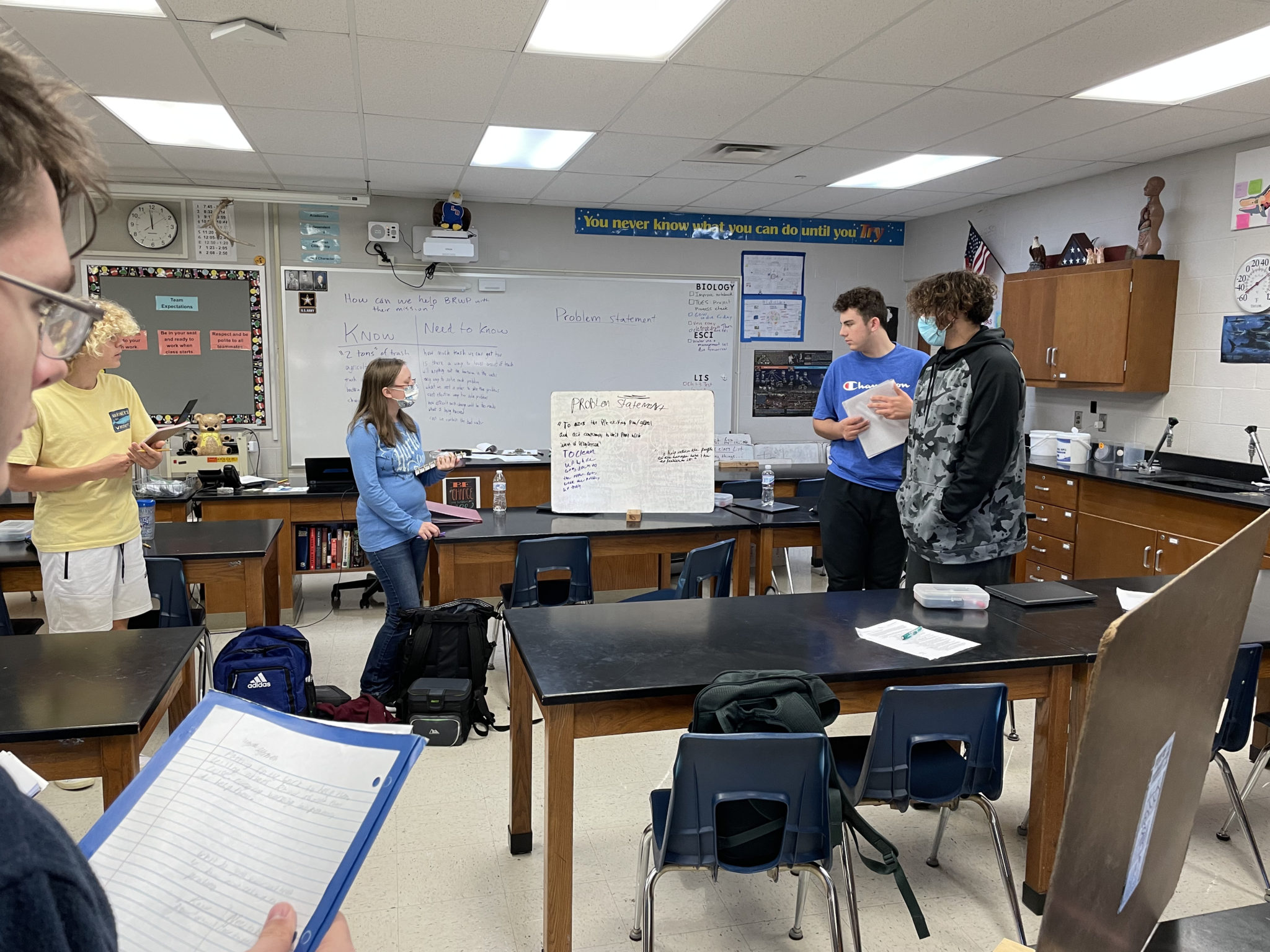The Ohio Rural Educators Program trains teachers to connect existing science lessons to real-world agriculture needs, so that students will begin to make connections between classroom content and future careers. As the Ohio STEM Learning Network and Education Projects & Partnerships recruit for a second cohort, we talked with Liberty-Benton teacher Chad Marzec.
The Ohio Rural Educators Program will engage 25 middle and high school science teachers from rural schools in a year-long professional learning cohort. The program combines problem-based learning (PBL) training with agriculture-specific content knowledge and tools to implement effective and meaningful PBL lessons in the classroom. The program seeks to fully equip teachers with the training, resources, and ongoing support necessary to transition a current classroom lesson into a hands-on, problem based lesson with a focus on agriculture.
Learn more about OREP |
Apply here by March 10, 2022 |
Q: Tell us a little bit about yourself – Where do you teach? What do you teach?
 I teach at Liberty-Benton High School. I currently teach Biology, Environmental Science, and Life in the Sea (College Credit Plus Marine Biology from Bowling Green State University).
I teach at Liberty-Benton High School. I currently teach Biology, Environmental Science, and Life in the Sea (College Credit Plus Marine Biology from Bowling Green State University).
Q: What interested you in the OREP program?
I was excited to enroll in the OREP program in order to get a better understanding and knowledge of agriculture and agricultural practices. I am from just south of Toledo and I had no agriculture background. With Liberty-Benton being in a rural community, the amount of information gained from this class has definitely helped me connect better to my students.
Q: You are ¾ of the way through the program – could you tell us about your experience so far?
The program has exceeded my expectations. My favorite part of the program is the relationships built and shared knowledge with not only the OREP staff but the fellow teachers in the program. I also really appreciated our trip to the Farm Science Review and Waterman farm. I was able to gain a lot of ideas from these trips that I later applied to my PBL lesson.
 Q: The program includes creating an ag-focused problem-based learning unit (PBL). What project did you create for your students?
Q: The program includes creating an ag-focused problem-based learning unit (PBL). What project did you create for your students?
I created a water pollution PBL unit in collaboration with a community partner: The Blanchard River Watershed Partnership
Q: What was the student feedback about the PBL?
The students really enjoyed the PBL. They were given a lot of student voice and choice in the problem statement: How can we help Blanchard River Watershed Partnership better meet their mission?

Q: What reflections do you have as an educator on the PBL?
In the past, I have taught all of these concepts in lecture and lab based formats. My results in the past have been dismal. By changing the format to a PBL unit and letting the students have a lot of voice, the results were completely different. I saw leadership in the classroom that I did not see before! My eyes were truly opened and I am actively looking to use more PBL lessons in my classroom.
Q: What advice would you give to someone considering an application to be part of OREP?
The knowledge gained and the relationships built are worth submitting the application!
Learn more about OREP |
Apply here by March 10, 2022 |